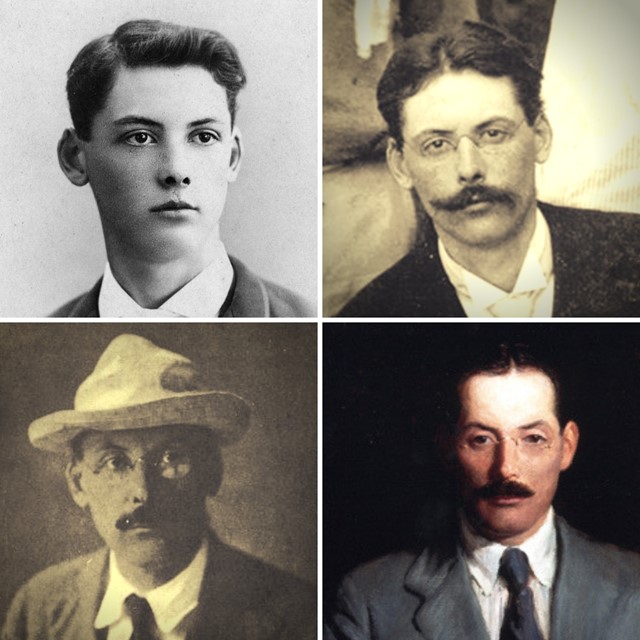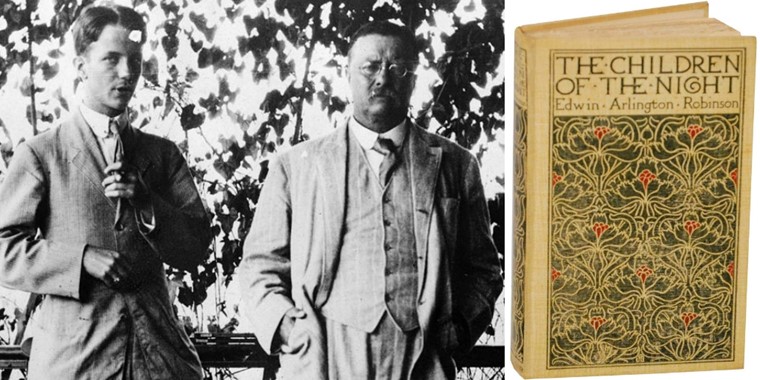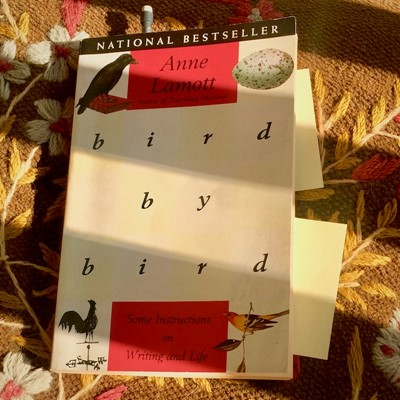
The Buckley School's founder believed that all public speakers should hone their presentation skills by reading poetry out loud. We keep that worthwhile practice alive by including a poem in our magazine each month for you to read aloud. Above, four images of poet E.A. Robinson.
"I am not sure I understand ‘Luke Havergal,’ but I am entirely sure that I like it."
– Teddy Roosevelt reviewing Robinson’s book of poems “The Children of the Night”
A prolific poet who won the Pulitzer Prize three times, Edwin Arlington Robinson first defied family expectations of a career in business and science, then struggled to get his poems published.
Robinson was born in 1869 to parents who were wishing for a girl. They did not name him until six months later, literally drawing "Edwin" from a hat of random boys' names. Perhaps not surprisingly, Robinson described his childhood as "stark and unhappy."
His poetry, too, was often deemed bleak, with a grim humor. Robinson himself said of his early attempts at getting his work published that he'd amassed a pile of rejections "that must have been one of the largest and most comprehensive in literary history.”
 Kermit Roosevelt (left) introduced his father to Robinson's poetry through this book.
Kermit Roosevelt (left) introduced his father to Robinson's poetry through this book.
By the early 1900s, Robinson was writing less, drifting between jobs, and drinking heavily. Then in 1904 Kermit Roosevelt, son of President Theodore Roosevelt, showed a book of Robinson’s poems to his father. The president became a fan, convinced Scribner’s to reissue The Children of the Night, wrote a review of it himself, and helped Robinson get a steady job at the New York Customs House.
In 1910, Robinson dedicated his book of poems, The Town down the River, to Roosevelt.
Robinson’s most-read poems today are those about characters who live in fictional Tilbury Town. It’s a New England village based on Gardiner, the town in Maine where Robinson grew up.
"His whimsical poem about the malcontent modern who yearned for the past glories of the chivalric age and who finally 'coughed, and called it fate/And kept on drinking,' is presumably a comic self-portrait."
– Robert Gilbert in the "Concise Dictionary of American Literary Biography"
"Miniver Cheevy," our poem to read aloud this month, tells the story of one of those residents. It was included in The Town down the River. The character of Cheevy is thought to be Robinson portraying himself in those difficult years before the Roosevelts discovered his work.
Miniver Cheevy
Miniver Cheevy, child of scorn,
Grew lean while he assailed the seasons;
He wept that he was ever born,
And he had reasons.
Miniver loved the days of old
When swords were bright and steeds were prancing;
The vision of a warrior bold
Would set him dancing.
Miniver sighed for what was not,
And dreamed, and rested from his labors;
He dreamed of Thebes and Camelot,
And Priam’s neighbors.
Miniver mourned the ripe renown
That made so many a name so fragrant;
He mourned Romance, now on the town,
And Art, a vagrant.
Miniver loved the Medici,
Albeit he had never seen one;
He would have sinned incessantly
Could he have been one.
Miniver cursed the commonplace
And eyed a khaki suit with loathing;
He missed the mediæval grace
Of iron clothing.
Miniver scorned the gold he sought,
But sore annoyed was he without it;
Miniver thought, and thought, and thought,
And thought about it.
Miniver Cheevy, born too late,
Scratched his head and kept on thinking;
Miniver coughed, and called it fate,
And kept on drinking.






